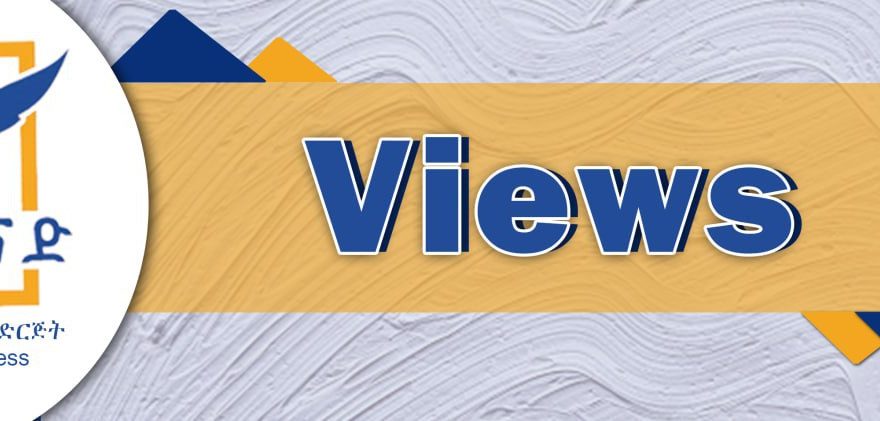
The Ethiopian version of democracy is still at its infancy but it is the responsibility of all concerned to save it from untimely stunting. Otherwise our democracy will remain to be a buzz word that everybody is repeating in fashionable public speeches and lectures from podiums.
Democracy is not an isolated variable but is closely linked to the rule of law and order. Conceptually democracy does not mean that one can do anything at his desertion bypassing the provisions of the law. Accountability is a major component of a democratic system. In Ethiopia, democracy has not yet become a component of the political culture of the country. The vestiges of old feudal pattern of thinking are still rampant even in those who claim to be well educated.
Every Ethiopian who wishes to be democratic or looks to benefit from democracy needs to understand that democracy is unthinkable without responsibility and accountability. In a society like Ethiopia ridden with poverty, struggle for scares resources and materials seriously jeopardizes the quest for a democratic political order.
Ensuring the prevalence of democracy in Ethiopia requires a level of economic development that is needed to practically implement the democratic rights enshrined in the constitution. It must therefore be noticed that democracy is a process and not just a single socio-political right that springs at one point in time.
Liberal understanding of democracy focuses on the right of the individual and on safeguarding the private property of individuals. Liberal democracy may be taken as future strategy for Ethiopia but there is far more to be done before freedoms like freedom of movement, freedom to work and live anywhere in Ethiopia could be implemented.
The democratic rights of each individual in Ethiopia are well recognized and respected only when the civic rights of the entire population is respected. Democraic rights may be demanded individually but they are uphold only in a social context and in a given level of socio-economic development.
As stated above, democracy is closely linked to individual and social responsibilities and obligations that are to be cherished by all citizens.
Ethiopia has made significant strides toward democracy, particularly with political reforms and greater civic engagement. However, managing democracy and freedom remains a complex challenge due to historical, political, ethnic, economic, and institutional factors.
The polemics on democracy and the challenges thereof often emanate from various factors. Weak democratic institutions and their inability to enforce their decisions. The judiciary, electoral bodies, and parliament often struggle with impartiality and independence. There is a lack of strong checks and balances to prevent power abuse.
On the other hand, election processes are frequently contested, leading to violence and instability. Opposition parties often face restrictions, limiting true democratic competition. Ethiopia’s ethnic-based federalism creates tensions between the central government and regional states. Some regions demand more autonomy, while others seek stronger central governance. Given the polemics between ethnocentrism and civic nationalism, the issue becomes more complex and escalating controversy among the electorate.
Ethnic identity plays a dominant role in politics, often leading to exclusion, favoritism, and conflicts. Political parties are largely organized along ethnic lines, reducing national unit frequent interethnic clashes challenge the protection of democratic rights. Displacement due to ethnic violence undermines stability and governance. Social media is used to spread propaganda, deepen divisions, and incite violence. Lack of regulations and digital literacy leads to the spread of fake news.
All the above challenges in democracy and democratic rights not only affect the pace of the development of democracy in the country but also exacerbate the debates and polemics on the issues of democracy. Economic hardships make citizens vulnerable to political manipulation. Lack of basic services reduces participation in democratic processes. That is why the ethnocentric and civic political outlook both requires economic independence for the promotion of democracy.
Besides, high youth unemployment leads to frustration, radicalization, and political violence. It must be noted that a struggling economy undermines the legitimacy of democratic governance. Security forces have been accused of excessive force and human rights violation.
Ensuring both national security and civil liberties remains a delicate balance. Armed groups, such as in Oromia and other regions, challenge state authority. National security threats hinder democratic governance and freedom.
Despite the fact that a more democratic law has been enacted, civil society organizations (CSOs) are often restricted or lack resources to operate independently. Limited civic education reduces public awareness of democratic rights and responsibilities. Western and regional powers often interfere in Ethiopia’s internal affairs, influencing political outcomes. Economic dependence on foreign aid limits independent policy making ability.
Managing democracy and freedom in Ethiopia requires addressing ethnic divisions, political instability, media challenges, and economic hardships. A balanced approach—promoting inclusive governance, economic opportunities, security, and civic engagement will be key to a stable and democratic Ethiopia. DEMOCRACY DEVELOPS OVER TIME AND WITH THE PARTCIPATION OF CITIZENS.
Editor’s Note: The views entertained in this article do not necessarily reflect the stance of The Ethiopian Herald
BY SOLOMON DIBABA
THE ETHIOPIAN HERALD FRIDAY16 MAY 2025



